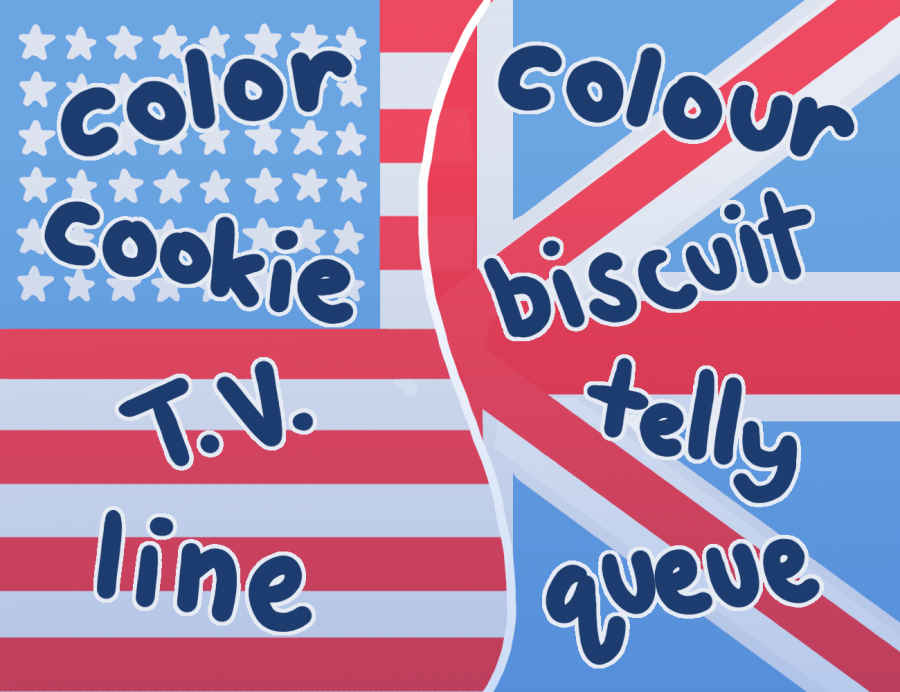American vs. British English
March 1, 2019
If you’re unfamiliar with British slang, you’d probably have no idea that the phrase “My flatmate was having a cuppa with biscuits while watching the telly” actually means “My roommate was having tea with cookies and watching TV.” Despite being the same language, British English and American English are quite different. The U.S. and the U.K. have different accents, vocabulary, and slang that make their version of the English language unique.
VOA News states that “the most noticeable difference between American and British English is vocabulary.” For starters, a handful of words in British English are spelled with “our” while their American versions are spelled with “or”. We’re used to using “color”, “flavor”, and “favorite”, but the British use “colour”, “flavour”, and “favourite”. Additionally, some words that end in “ter” are spelled as “tre” in the U.K. “Theater” is spelled “theatre”, “specter” is spelled “spectre”, “caliber” is spelled “calibre”, and so on. Despite the spelling differences, the words are pronounced the same way in both regions.
On the other hand, other words that have the same spelling in the UK and the US have different pronunciations. While we leave out the “h” sound in “herb”, the British pronounce it. We say the letter “Z” like “zee”, but they say “zed”. We pronounce the words “mobile” and “schedule” like “moh-bul” and “sked-yule”, but they pronounce them as “moh-byle” and “shed-yule”.
The biggest difference between American and British English is slang. Some British slang words are completely different from words that Americans commonly use. “Queueing” means “standing in line”, “taking the lift” means “taking the elevator”, “crisps” means “chips”, and “loo” means “bathroom.” When a British person says, “That bloke’s lorry got a flat tyre so he took the underground to the chippy,” they mean “That guy’s truck got a flat tire so he took the subway to the fish and chips shop.” Luckily, many words that the British use are familiar synonyms of words that Americans use. Their usage in one region or the other is merely a matter of preference. British people prefer to say “cinema”, “sweets”, “pavement”, and “post”, while Americans prefer “movie theater”, “candy”, “sidewalk”, and “mail”.
Contrary to popular belief, there isn’t a singular British accent. Britain has many different accents that vary by region, just like America. Similar to how a Californian, Texan, and New Yorker have different accents, people from England, Scotland, Wales, and Ireland have different accents. Professor McGonagall from Harry Potter speaks with a Scottish accent and Dumbledore has an Irish one. Each country even has multiple variations of its own accent! Harry Potter has a “London accent” and Hagrid has a “West Country accent,” both of which are English accents.
If you’re planning on “taking a holiday across the pond” (“going on vacation to the U.K.”) or you just want to learn more about British culture, exploring the differences between our version of English and theirs is a great way to start!

